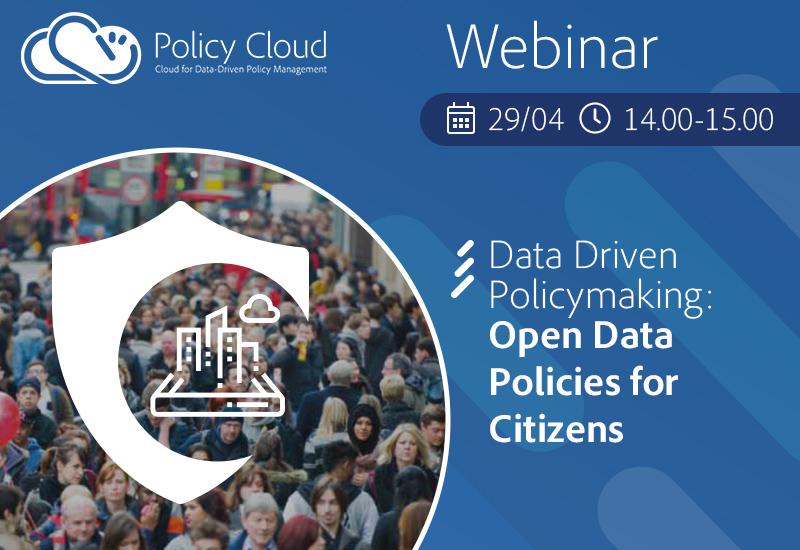
- Cloud for Data-Driven Policy Management
- Contact Us
- Join our community
- Login
The Policies for Citizens Pilot Webinar
On 29 April 2021, from 14:00 to 15:00 (CEST), Policy Cloud is hosting a webinar on Open Data Policies for Citizens.
The pilot use case Open Data Policies for Citizens is being run in Camden, one of the twelve boroughs of inner London. The pilot addresses social services policy planning in the area. Precisely, the work articulates around predicting risk factors across four distinct domains:
- Housing and adult social care
- Children, schools and families
- Culture and environment planning
- Building and parking services
Using the information harvested from data analytics, the Council will be able to design evidence-based policies and evaluate their economic feasibility, political viability, and legitimacy, thereby improving the quality of the services offered to citizens and achieving efficiency and effectiveness, which are key elements of good governance.
The webinar includes the following topics:
- Pilots use case
- Technology solutions
- EU policy context
- Round Table Discussion
Watch the recoring:
Agenda
| Time |
Topic |
| 14:00 - 14:05 |
|
| 14.05 - 14.15 |
|
| 14.15 - 14.25 |
|
| 14.25 - 14.35 |
|
| 14.35 - 15.00 |
|
Chair
 Marieke Willems - Project Manager Trust-IT Services
Marieke Willems - Project Manager Trust-IT Services
Marieke Willems is a Project Manager at Trust-IT Services. With an MBA and an MSc in Communication Science. Marieke is involved in several activities on research projects, involving stakeholders’ engagement, marketing research and communications. She is currently leading the dissemination work in the European Research and Innovation projects Social Sciences and Humanities Open Cloud (SSHOC) and Policy Cloud, and is involved in the Horzions Results Booster.
Speakers
 Ben Williams - Senior Data Engineer, London Borough of Camden
Ben Williams - Senior Data Engineer, London Borough of Camden
Ben Williams is a Senior Data Engineer, within the Data and Analytics department within the London Borough of Camden. He received a Business Intelligence and information systems degree at the University of Middlesex. He is responsible for the development of Qlik Sense dashboards, SAP Business objects reports and Rapid applications. He has been the technical lead for a number of projects and has developed numerous applications, dashboards and reports for legal, finance and housing departments within the council. He has extensive knowledge of data manipulation, data analysis and dealing with complex business requirements as well as adapting systems to comply with different data sources. Ben has participated in the international project European strategic project (2016) and has experience with Open datasets.
 Francesco Mureddu - Director, Lisbon Council for Economic Competitiveness & Social Renewal & Policy Cloud ICB
Francesco Mureddu - Director, Lisbon Council for Economic Competitiveness & Social Renewal & Policy Cloud ICB
An analyst and strategist in innovation and technology policies. During his career Francesco has supported, and in many cases, driven the design and delivery of consultancy and research projects in a wide variety of topics including the impact of Digital Transformation, Big data and Artificial Intelligence, e-government, Smart cities, ICT-enabled social innovation, future science, Citizen Science, research and innovation policies, and health. Francesco masters a wide array of methodologies including evaluation and impact assessment of policy initiatives and projects, policy development and benchmarking, technology roadmapping and scenario development, economic and econometric modelling, cost/benefit and sensitivity analysis, and stakeholders’ consultation and engagement.
- 4287 reads


